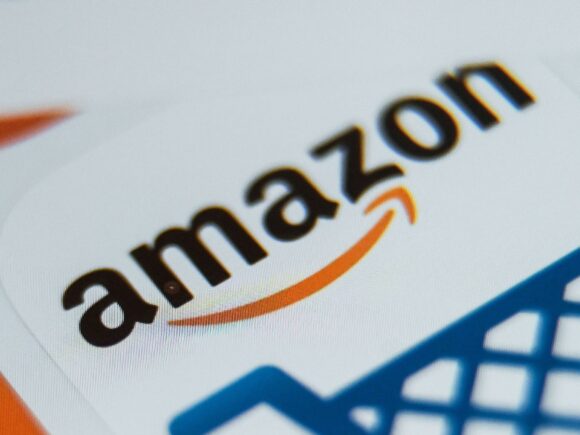Online marketplace Amazon can be sued under New Jersey product liability law for defective products sold by third-party sellers on its website.
The federal district court in New Jersey sided with the New Jersey Manufacturers Insurance Group in its representing an insured who purchased an allegedly defective hoverboard on Amazon.som. Filing as a subrogee of the insured, NJM asserted a strict lability claim under the New Jersey Product Liability Act (NJPLA).
Amazon sought summary judgement on the basis that it was neither the manufacturer nor the seller of the hoverboard as required under the New Jersey statute, which limits liability to manufacturers and sellers. Amazon also cited rulings from other jurisdictions in its attempt to avoid falling under New Jersey’s law.
But in a late June opinion by U.S. District Judge Julien Xavier Neals, the court denied Amazon’s summary judgement, finding that Amazon is indeed a product seller under the law. According to Neals, Amazon can be sued because even if it did not have control over the product itself, the NJPLA also applies to any party that “otherwise is involved in placing a product in the line of commerce.”
The NJPLA defines a product seller as: any person who “sells; distributes; leases; installs; prepares or assembles a manufacturer’s product according to the manufacturer’s plan, intention, design, specifications or formulations; blends; packages; labels; markets; maintains or otherwise is involved in placing a product in the line of commerce…”
In January 2015, the Chinese manufacturing firm Paradise 00 became a third-party seller on Amazon.com. In November 2015, Angelo Gencarelli purchased two Paradise 00 hoverboards through Amazon.com. NJM claims that one of the hoverboards caught fire and damaged the home of NJM’s insured.
As a third-party seller, Paradise 00 was required to enter into the Amazon Services Business Solutions Agreement. The BSA gives Amazon the right to determine the content and all other aspects of the Amazon sites, including by suspending, prohibiting or removing any listing. Also, Amazon customers cannot make direct payment to third-party sellers. Amazon processes the purchaser’s payment and takes out its fees. The referral fee Amazon obtained on the category of products such as hoverboards was 15%.
In addition to processing payments, Amazon also processes all refunds and guarantees products purchased on its website.
The BSA also requires third-party sellers to indemnify Amazon for any claims or losses arising out of the sales of their products. According to the court, Amazon sought indemnification from Paradise 00, but Paradise 00 had not provided indemnity.
From November 10, 2015, to December 10, 2015, Amazon customers purchased 244,430 hoverboards through Amazon.com.
As of December 10, 2015, Amazon had received 17 customer complaints in the U.S. concerning fire and explosion risks posed by hoverboards. Amazon began removal of all hoverboards from Amazon.com.
Judge Neals found that based on Amazon’s services agreement and its actions, and the plain language of the NJPLA, Amazon is a product seller. First, Amazon was in the business of selling hoverboards. Second, Amazon was involved in putting hoverboards in the line of commerce. Although Paradise 00 listed the hoverboards, Amazon processed the payment and accepted its fees. Without Amazon, the NJM’s insured Giancarelli had no connection to Paradise 00 or the defective hoverboard.
The judge also said that Amazon’s actions after receiving complaints further indicate that Amazon was involved in placing hoverboards in the line of commerce.
“Amazon’s actions taken to warn its customers and remove potentially defective hoverboard products from Amazon.com were not only admirable, but also fit squarely” within the analysis for determining the potential liability of a product seller.
The judge rejected Amazon’s attempt to rely on case law from other jurisdictions to support its contention that it is not a product seller. “It is of little consequence whether Amazon is a “seller” for purposes of other states’ statutes, as each of those statutory schemes is based on distinct language and policy considerations,” Neals wrote.
The ruling is in keeping with another ruling by this district court that in 2019 also found that Amazon could be sued under Pennsylvania’s product liability law.
Courts have been divided over whether an online marketplace like Amazon can be sued over defective products under state product liability laws. California courts have sallowed such claims while courts in Maryland, Ohio, Texas and New York have disallowed them.
NJM had also included breach of implied warranty and negligence claims against Amazon. The court sided with Amazon in dismissing those claims because it said the NJPLA subsumed both of these claims.
Photo: A picture taken on August 28, 2019 shows the logo of US online store application Amazon displayed on a tablet in Lille. Photographer: Denis Charlet/AFP/Getty Images
Topics Lawsuits Carriers Liability New Jersey
Was this article valuable?
Here are more articles you may enjoy.



 How One Fla. Insurance Agent Allegedly Used Another’s License to Swipe Commissions
How One Fla. Insurance Agent Allegedly Used Another’s License to Swipe Commissions  California Smoke Damage Act Would Enable Wildfire Victims to Expedite Claims
California Smoke Damage Act Would Enable Wildfire Victims to Expedite Claims  Portugal Deadly Floods Force Evacuations, Collapse Main Highway
Portugal Deadly Floods Force Evacuations, Collapse Main Highway  Trump’s EPA Rollbacks Will Reverberate for ‘Decades’
Trump’s EPA Rollbacks Will Reverberate for ‘Decades’ 

